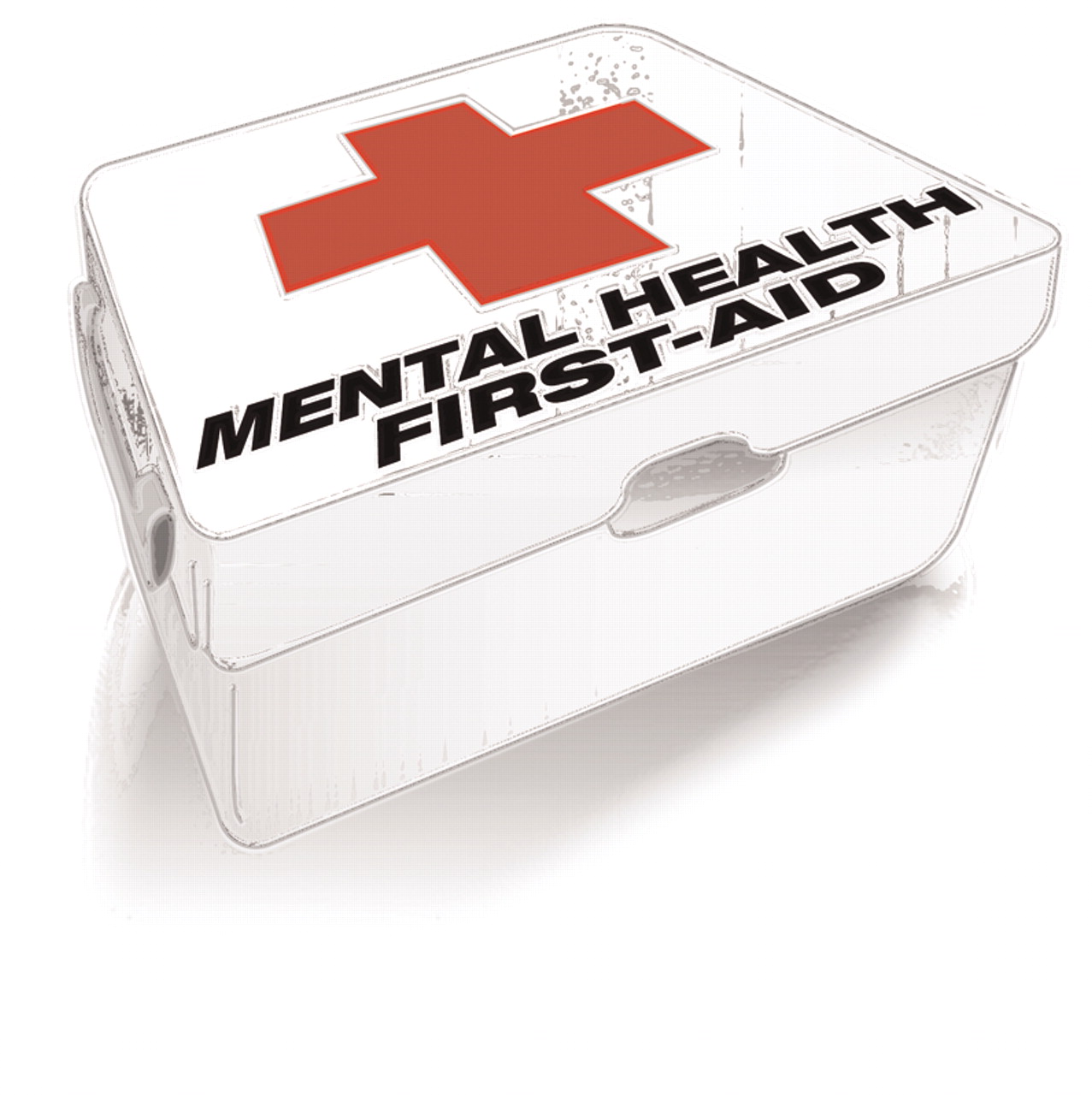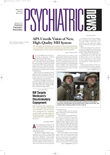The typical first-aid course brings to mind learning such life-saving techniques as CPR and the Heimlich maneuver. But what if someone’s life is at risk because he or she is threatening suicide or is acutely psychotic?
Now, throughout Australia, the public can pay $100 to take a course through Australian National University’s Mental Health First Aid program in Canberra to learn about how to help others experiencing a crisis due to a mental illness.
The program originated in the university’s Centre for Mental Health Research but courses are offered at sites throughout Australia.
During the 12-week course participants also learn about how to recognize early warning signs of substance use disorders, depression, anxiety disorders, and psychotic disorders.
“Why wait until people are completely disabled by their depression before you assist them in getting help?” asked program manager Betty Kitchener, R.N., in an interview with Psychiatric News. “Scientific evidence consistently shows that early intervention is effective.”
Mental Health Strategies Missing
Together with centre director Tony Jorm, Ph.D., D.Sc., Kitchener developed the course “Mental Health First Aid” in 2000 with a grant from the Australian Capital Territory Department of Health and Community Care to redress the fact that first-aid courses neglect to cover mental health issues.
Participants learn how to assess harm to self and others resulting from mental illness, listen while refraining from judgment, manage an acute mental health crisis, discuss local mental health resources, and recommend evidence-based self-help strategies for people living with mental illnesses.
Included with the course is a 60-page manual that describes early warning signs and more serious symptoms related to depressive, anxiety, psychotic, and substance use disorders.
“We all know how to assist someone who is having a heart attack,” said Kitchener, “but what if our friend or work colleague is suicidal? How do we know he or she is suicidal, and what are the warning signs?”
Although effective treatments for mental illnesses are available, “there are many people living with mental illness who don’t know things can be better for them or are afraid to seek help because of stigma,” she said.
Stigma Buster
Kitchener noted that the course not only is boosting mental health literacy throughout Australia, but also is helping to decrease the stigma of mental illness, which knows no national boundaries.
A study of 210 participants who took the mental health first-aid course appeared in the October 2002 issue of BMC Psychiatry. The researchers reported that six months after completing the course, 83 percent of participants said they felt confident in helping someone with a mental illness, compared with 62 percent at the beginning of the course.
In addition, there was a drop in social distance scores—that is, when participants were asked about whether they would move next to a person with depression or schizophrenia, participants felt more neighborly after having taken the mental health first aid course. “Overall, the course reduced stigma related to mental illness, and participants indicated that they are now more willing and able to give help,” Kitchener said.
Program Gains Popularity
Kitchener is well qualified to manage the mental health first-aid training program—she is trained as a counselor, primary school teacher, and nurse. She also knows what it is like to be on the receiving end of treatment: a severe bout of depression led to a hospitalization years ago.
She began as the sole mental health first-aid instructor, but she has since trained seven additional instructors and has plans to train 30 more in the coming months in Australia and elsewhere.
For instance, last month Kitchener went to Tasmania, where the Australian Red Cross offered mental health first-aid courses in addition to its regular first-aid courses. She will also train instructors in Scotland and help them to modify the course curriculum so that it is relevant to Scottish culture. She will also work with the governmental health service in Hong Kong to train instructors and launch the course there.
Kitchener has also spoken with employees of a number of different groups about the program, including governmental health agencies in Australia, church groups, and search-and-rescue groups such as the Australian Maritime Safety Authority.
About 2,500 people have taken the course since it began, she said. Some of those who sign up for the courses are caregivers of people with mental illness and others work for non-government organizations, which are privately-funded programs that serve people with a number of chronic medical disabilities.
Kitchener pointed out that not only do these workers come into contact with mental illness in their clients, but that since they work with disabled populations, “they are vulnerable to depression and anxiety disorders yet may know little about them.”
Mental Health First Aid in U.S.?
“The time has come to launch a mental health first-aid program in America,” said the chair of APA’s Committee on Public Affairs, Mary Helen Davis, M.D. She said that she had not heard of such a program in the United States but that psychiatrists affiliated with APA’s district branches had long been involved in public education campaigns targeting specific populations.
For example, during national mental health screening days for depression, anxiety disorders, and alcohol abuse, APA members may screen people or lead educational programs in conjunction with state coalitions.
“Mental health first aid is a more creative, out-of-the-box way to conceptualize mental health education programs,” said Davis, who added that the Australian program has the potential to reach a wider audience than do the specific mental health education campaigns in the United States.
Davis said that such a program would benefit everyone, particularly teachers, attorneys, and judges, by teaching them about the risk factors and symptoms of a variety of mental illnesses and treatment options. “The potential for destigmatization is tremendous,” she said.
More information about the Mental Health First-Aid program can be found on the Web at www.mhfa.com.au. The study, “Mental Health First-Aid Training for the Public: Evaluation of Effects on Knowledge, Attitudes, and Helping Behavior” is posted on the Web at biomedcentral.com/1471-244X/2/10. ▪

